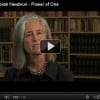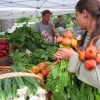Learn More Get Party details or buy your ticket Register for the 2012 New York Ride and Retreat Many thanks to Rachel Travis, New York Ride participant and steering committee member! Support her ride.


Learn More Get Party details or buy your ticket Register for the 2012 New York Ride and Retreat Many thanks to Rachel Travis, New York Ride participant and steering committee member! Support her ride.

Whoever said Jewish foodies and cyclists don’t have a sense of humor? The following are a collection of videos from Hazon Purim events from the past few years that are still good for a chuckle. Enjoy! (more…)

The Power of One is a celebration of Jewish women who inspire us to make a difference in the world.

Sasha Lansky, student at Macalester College and Hazon board member, speaks with Yiddish Book Center.

Today is Tu’Bshvat, the New Year of the Trees! We couldn’t think of a better way to celebrate than with a song and a dance!

Hazon staff shares why she’s not on Facebook at Boulder’s Ignite Chanukah event.
![[Video] Siach: A Jewish Conversation on Social Justice A Jewish Conversation on Social Justice](https://hazon.org/wp-content/uploads/2012/01/siach-conversation-social-justice-100x100.jpg)
While on a big mission, like repairing the world, you sometimes forget why you’re doing whatever it is you’re doing.
This panel discussion was recorded at JESNA’s Enriching LIFE Fellowship seminar in July 2011
Siach: An Environment and Social Justice Conversation is a network of activists and professionals in the Jewish community from the USA, Israel, and the UK.

Suzie and Ilana offer advice on cycling: Keep your butt happy and your arms warm.
2011 Israel Rider Elahn Zetlin has shared four more great videos highlighting each day of his trip, cycling from Jerusalem to Eilat

This rider has put together a few great videos of highlights from his first two days of riding.

UJA-Federation of New York — in collaboration with Met Council, AmeriCorps, and Hazon — invite you to participate in our first annual Care to Share citywide and volunteer fresh produce drive. Care to Share will take place from Monday, October 3 – Tuesday, October 18, 2011, encouraging volunteers to symbolically fulfill the Jewish custom of gleaning, a custom tied to the harvest season and the Sukkot period. Traditionally, farmers leave the four corners of their fields unharvested so the needy can glean from the fields with dignity. (more…)
![Why We Ride With Hazon: Ruth Messinger [VIDEO] Ruth-Messinger](https://hazon.org/wp-content/uploads/2011/07/Ruth-Messinger-100x100.jpg)
We want to know, why do you ride with Hazon? We grabbed a video camera and started asking. This week we hear from Ruth Messinger, president and executive director of American Jewish World Service. She has ridden in every New York Ride since its inception. Prior to joining AJWS in 1998, Ruth was in public service in New York City for 20 years, including having served as Manhattan borough president. American Jewish World Service’s Hunger Campaign, Fighting Hunger from the Ground Up, also happens to be a beneficiary of fundraising from the New York Ride. Read more about Fighting Hunger from the Ground Up. Why do you ride with Hazon? Leave your thoughts in the comments! Stay tuned for more videos! Learn More about the New York Ride & Retreat
Every year the Food Conference brings together lots of lovers of sustainable, delicious food, and when so many people with a shared passion are in one place, it’s no surprise that it serves as the starting point for many exciting friendships and collaborations. Aaron Schneider and Maryan Heneim, who met and became friends at the 2009 Food Conference, are a great example. Maryan is the filmmaker of Vanishing of the Bees, and their friendship inspired Aaron to coordinate a very successful screening of the film and tour of Boulder Jewish Commons Community Farm a few weekends ago. While coordinating the event, Aaron got in touch with the Boulder County Beekeepers Association, and ended up participated in a flash mob of people dressed as bees that they organized as part of National Pollinator Week! Check out the video of the flashmob below, and learn more here!
